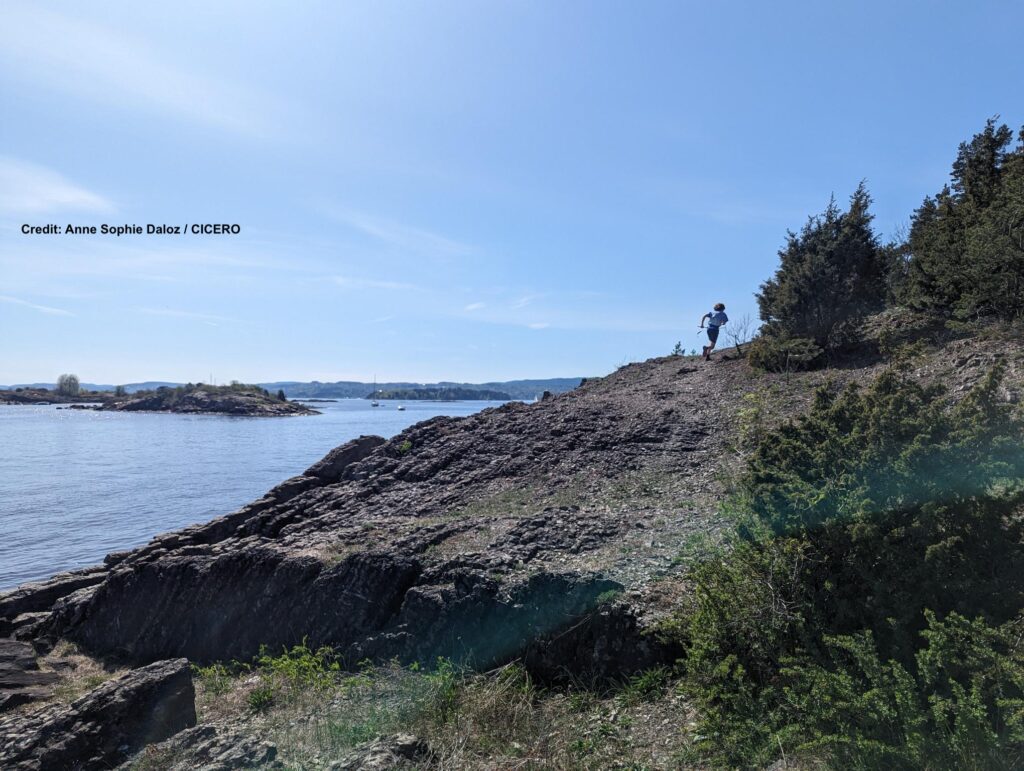
Scandinavian Region Second Focus Group takes a deep dive into complexity by exploring cross-sectoral Climate Adaptation Strategies
In an effort to enhance understanding and cooperation among key sectors in Scandinavia, the Second Focus Group (FG2) for the Scandinavian pilot project has successfully concluded a series of events designed to explore synergies and trade-offs between climate adaptation measures in the energy, agriculture, and forestry sectors. These events form a crucial part of the ongoing study aiming to address climate risks and promote multi-sectoral pathways for adaptation.
FG2 was organised into three events, each with distinct objectives and participant groups:
1. Workshop on the Storyline Approach for the compound event of 2018:
Researchers dedicated their efforts to developing a narrative for the compound heatwaves and droughts which affected Scandinavia in 2018. Julia Crummy and Lara Smale from BGS, leading the work on Storyline, also joined the workshop. This workshop aimed to create a comprehensive storyline that will be presented at Arendalsuka, Norway’s largest political gathering, in August 2024. Tara Botnen Holm’s research on disaster risk management (DRM) and adaptation strategies is playing a significant role in this initiative.
2. Workshop on Synergies and Trade-offs between agriculture, energy and forestry:
This event focused on exploring the interactions between adaptation measures across the energy, agriculture, and forestry sectors. Supported by three preliminary meetings with sectoral experts, the workshop fostered a multidisciplinary approach, combining natural and social sciences to develop integrated adaptation strategies.
3. Stakeholder Engagement Seminar:
This seminar focused on reaching a broad range of stakeholders to raise awareness about climate risks related to water availability. An oral presentation at Norway’s annual adaptation meeting facilitated knowledge exchange among decision-makers and stakeholders.
Key Insights and Methodologies
The Storyline Approach
The storyline approach emerged as a powerful tool for connecting different disciplines and enhancing the understanding of complex systems. It facilitates collaboration between academia and decision-makers, providing a platform to raise awareness about the impacts of single and combined climate hazards on water availability. The Wetland International has been contributing to our thinking around these questions, bringing their knowledge on nature-based solutions in the context of extreme events. Besides, this method enables researchers in the Scandinavian pilot to expand their perspective on climate risks by thinking about the role and effects on nature, like ecosystem diseases. This qualitative approach also facilitated the integration of impacts on additional sectors such as health, in connection with past and ongoing research at CICERO (e.g. ACRoBEAR and EXHAUSTION).
The GRACE Model
The GRACE (Global Resource Assessment and Climate Evaluation) model was employed to assess the socio-economic impacts of the 2018 multi-hazards (drought, heat stress, and wildfire) on Scandinavia. This computable general equilibrium (CGE) model highlighted the significant interconnections among sectors through the supply chain effects and among regions through the trade effects. Thus, the GRACE model helps researchers understand the complex economic interactions affected by climate events, providing a detailed picture of the direct and indirect impacts across sectors and regions.
The DAPP and DAPP-MR Tools
The Dynamic Adaptive Policy Pathways (DAPP) and DAPP-MR (Multi-Risk) tools were tested for their efficacy in developing adaptation strategies. These tools revealed the complexity of balancing synergies and trade-offs at different scales. The FG2 suggested two potential approaches: focusing on one sector at a national scale in relation to other sectors or addressing all three sectors at a local scale.
Future steps
The FG2 provided a platform for valuable stakeholder engagement and knowledge co-development. By integrating feedback from previous workshops and utilising innovative methodologies, the Scandinavian pilot is poised to develop comprehensive adaptation strategies. The project’s participation in Arendalsuka will further disseminate these findings, fostering a broader dialogue on climate resilience.
As the Scandinavian pilot progresses, the collaboration among researchers, sectoral experts, and stakeholders remains pivotal. The upcoming Final Pilot Workshop will consolidate these efforts, aiming to present a robust framework for multi-sectoral climate adaptation in Scandinavia.
